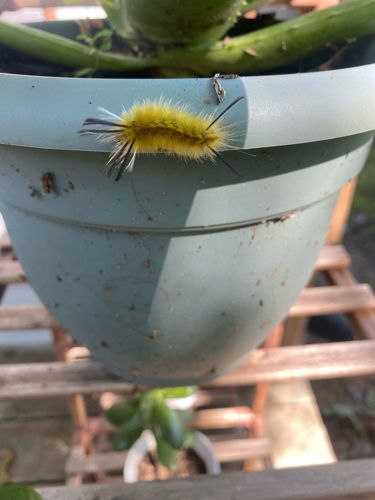American Dagger Moth Caterpillar
Scientific Name: Acronicta americana
Order & Family: Lepidoptera (Moths and Butterflies), Noctuidae (Owlet Moths)
Size: Larvae (caterpillars) typically grow up to 1.5 - 2 inches (4-5 cm) long.

Natural Habitat
Deciduous woodlands, orchards, urban gardens, and areas with their host trees such as oak, maple, elm, ash, and willow.
Diet & Feeding
The caterpillars are herbivores, primarily feeding on the leaves of various deciduous trees including oak, maple, elm, ash, birch, and willow. Rarely found on fruit trees.
Behavior Patterns
These caterpillars are solitary feeders. When disturbed, they may curl up or drop from the leaf. They overwinter as pupae in cocoons. The adult moths are nocturnal. The long black hairs are used for defense and can break off easily.
Risks & Benefits
Potential Risk: The long yellow hairs and black 'daggers' can cause skin irritation (dermatitis) in sensitive individuals if handled, due to urticating hairs. Contact should be avoided. Benefits: As part of the food web, they can be a food source for birds and other predators. While they feed on leaves, they are not typically considered a significant pest to healthy trees; however, large infestations could cause defoliation, especially in young trees.
Identified on: 9/14/2025